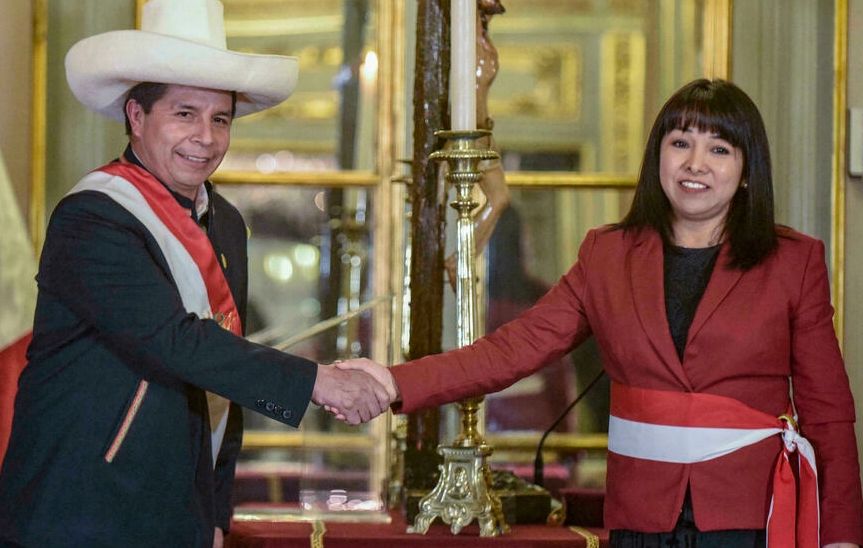Peruvian President Pedro Castillo accepted the resignation of his prime minister on Wednesday and appointed a female environmental activist to take his position as prime minister.
According to Peruvian legislation, the resignation of the prime minister immediately results in the resignation of the whole government.
Within hours, Castillo appointed Mirtha Vasquez, a 46-year-old environmental and human rights activist, as his new prime minister, in a move widely seen as a concession to the more moderate side of the informal leftist coalition that backs him.
Castillo offered no explanation for his decision to replace Guido Bellido as premier, who was a more hardcore communist than he was. The reason for Bellido’s resignation was stated in his letter: he was acting at Castillo’s “request.”
In order to ‘accomplish shared goals,’ such as reactivating the economy, the Marxist president, who used to be a rural schoolteacher, asked for ‘unity’ from Peru’s economic, political, and social sectors.
Castillo’s selection of Bellido, an electrical engineer and political neophyte, in July was fraught with controversy from the outset.
Peruvian media said that authorities were looking into whether Bellido, 41, had made comments in support of terrorism soon after he was elected to the country’s parliament in June.
In remarks to the Inka Vision online news source, he seemed to defend those who backed the Shining Path Maoist guerrilla group, which battled the state from 1980 to 2000 and is now classified as a terrorist organization by the Peruvian government, according to the newspaper.
At least until that point, Peru has been mired in political ambiguity since early this year, when the presidential election campaign got started.
Several years of political instability in Peru have culminated in a succession of corruption scandals that resulted in three different presidents taking office in a single week last November.
Seven of the country’s past ten presidents have either been convicted or are now under investigation for bribery and corruption.
In addition, Castillo’s victory against right-wing populist Keiko Fujimori in the second round presidential run-off in June took six weeks to be certified due to delays in certifying the results of the election.

